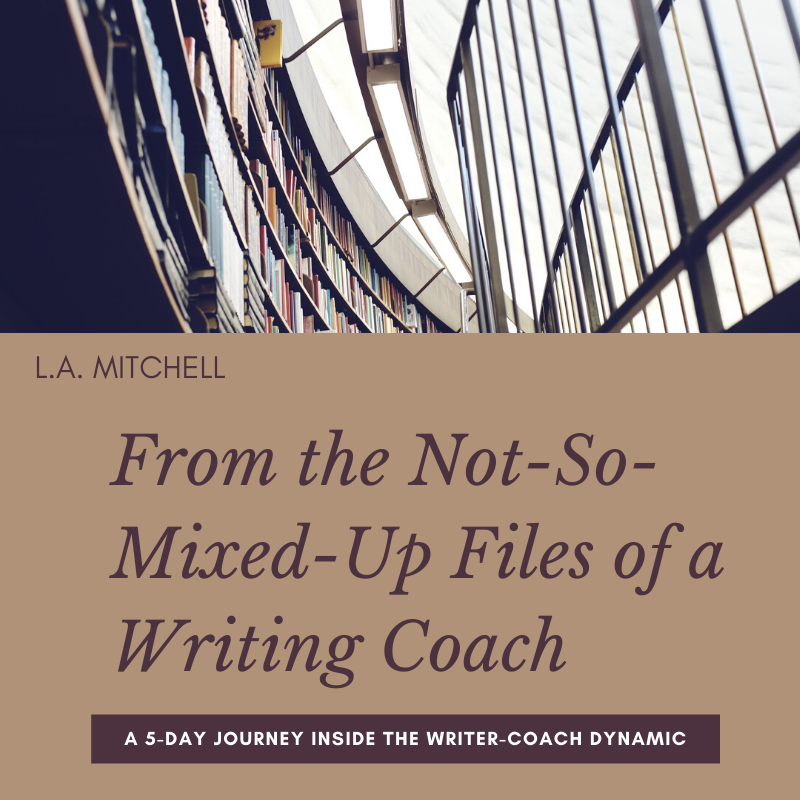
The Writer-Coach Relationship, Reinvented. Every. Time.
One of my coaching clients is in his seventies. He lives on a berry farm in a rural part of the Rockies. More than anything, he wants to write stories for his family, to leave his legacy. He is new to writing. I teach him about things like dependent clauses and echo words and the magic of bringing a short story full circle. He reminds me to hold tight to the joy of writing that tends to wane with time and success.
Our dynamic belongs to us.
Another client is an astute businessman and lawyer whose brilliance at making grand, important buildings happen humbles me. I rub sentences together for a living. Sometimes they're good sentences. He orchestrates entire architectural projects; and yet, he finds value in what I teach him. I help him get his words out of the way so his genius is clear.
Our dynamic belongs to us.
My clients are military heroes, CEOs, Hollywood screenwriters, loving grandmothers with an affinity for the paranomal, and romance writers who are some of the savviest marketing gurus around. Every writer-coach dynamic is unique. They bring their gifts, and I help them rub a few sentences together.
Their budget. Their frequency. Their goals on their timeline. Their video software preference (unless you're a berry farmer and prefer a good old-fashioned phone call).
Coaches should be malleable.
If a coach says you must be a plotter, run. If a coach nickel and dimes you to death, walk away. If a coach gives you line edits but does not explain the impact of such a subtlety on a reader and how to apply to all future instances, find another. If a coach fills the same role in your life as a voice reminder to set your butt in the chair and write, save your money.
Coaches should synthesize resources, embrace the creative approaches of our clients that may not match ours, forever ask "What next?" and see where that answer takes the relationship.
Coaches see point Z, the same as an editor, but we also see the path, A to Y. Sometimes we even hop past Z to a different linguistic trail. We look further down the road than the most immediate book then ask the big-picture questions that impact where a writer will be in 5/10 years.
Coaches are the quality, no-drama critique partners you cannot seem to find, the betas who champion story and truths, the line of encouragement in an email and the subsequent paragraph filled with actionable verbs to the next steps.
Coaches should be responsive and flexible. Momentum is lost inside heavily-booked schedules. I have taken highly-motivated writers from beginner to agented and contracted in 18 months. If every time you are ready to move forward, you must wait weeks, those weeks will turn into lost years.
A coach should reinvent the wheel with each new writer-coach relationship because that is what each writer deserves. It takes monumental effort, that emotional investment, as much for the coach as the writer. Some days, it's a Herculean exercise in mental gymnastics to remember where I was in the writing process 22 years ago, why I believed meandering, Faulkner-esque sentences were cool, and why every opinion about my writing was an affront to humanity. And yet, the payoff for such an investment, coach to writer and back again, is heady. Two minds, together, pursing a common dream. Yes, your dreams become ours. Coaches feel the sting of a client's industry rejection behind our breastbones. We also feel the elation of accomplishment in our tears.
Selfish, I know. What comes from our investment.
So now you know what to look for in a quality coach. You know what is required of the writer-coach dynamic to make a difference - a real difference - in the trajectory and time horizon of your journey. You know that to settle for anything less is to drain precious resources away from your craft.